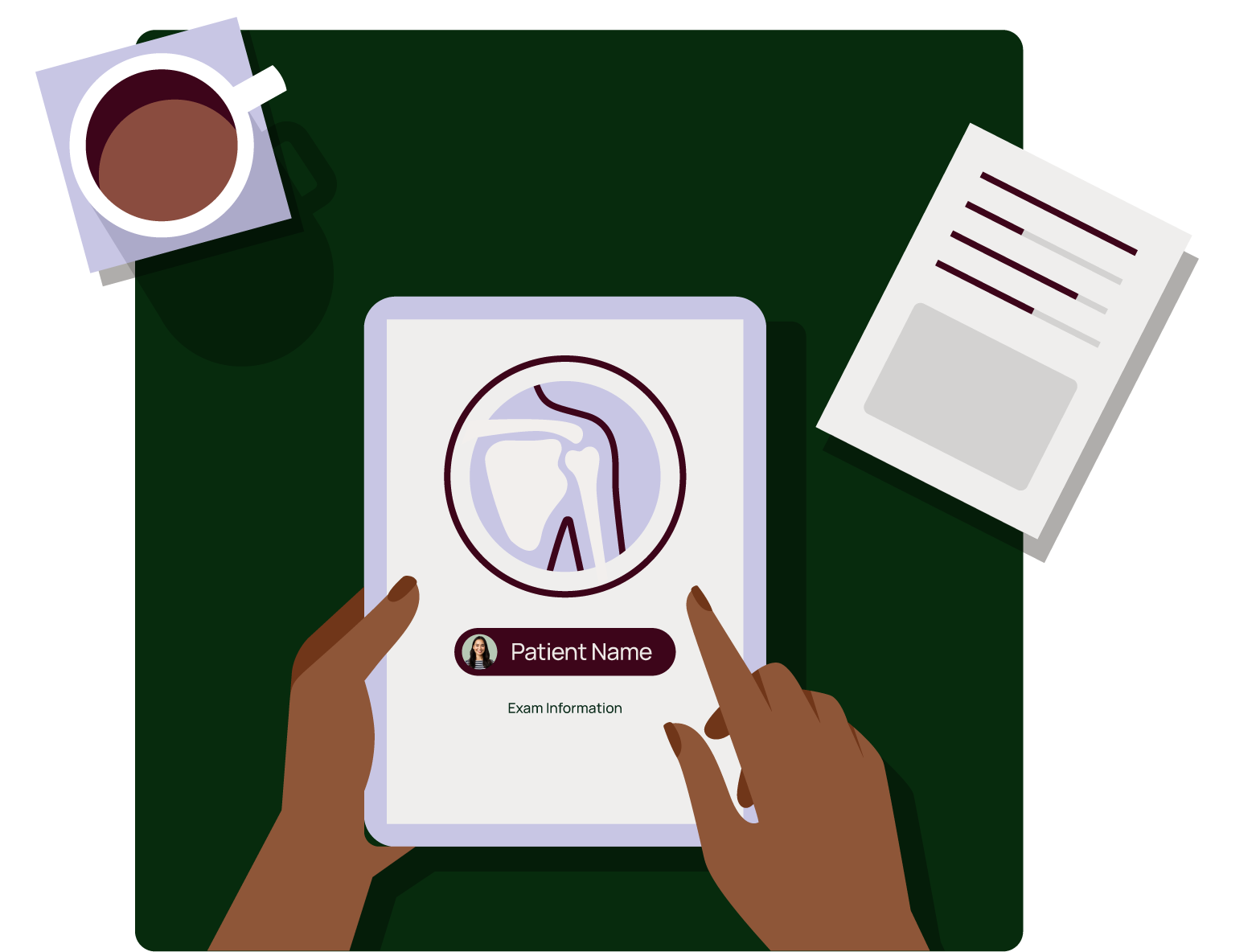August 27, 2024
The recent cybersecurity attack on a subsidiary of UnitedHealth Group is a stark reminder of how important it is to use advanced security measures to protect patient health information (PHI). The effects of this attack are far-reaching, exposing the data of over one-third of all US residents. You may be asking; why did this attack have such a devastating impact?
The subsidiary of UnitedHealth Group had relatively old technology with architecture dating back as many as 40 years and not equipped to combat sophisticated tactics used by hackers. Luckily, native security measures embedded in products like IntelePACS, InteleShare, and InteleArchive are far more equipped to handle ransomware tactics of today.
The Best Strategy is Prevention
The best way to protect enterprise patient data from ransomware attacks is to have robust security protocols in place that prevent exposure of PHI. The protocols below are embedded in many of Intelerad solutions and serve to protect our partner facilities from attack.
Multi-Factor Identification
Intelerad products offer options for Multi-Factor Identification (MFA) and Single Sign-On (SSO) for user accounts. MFA requires users to provide two or more verification factors to gain access to a resource, such as an application, online account, or VPN.
The option to integrate MFA with an SSO Identity Provider streamlines the login process while still maintaining high security. This setup allows users to log a single time and gain access to all necessary applications without having to re-enter credentials.
This additional layer of security makes it significantly harder for attackers to use data by preventing unauthorized access.
Role-Based Access Controls
Role based access controls restrict system access to authorized users based on their role within an organization. In the spirit of safety and security, we employ the “Least Privilege Principle.” This ensures that individuals only have access to the information and resources necessary for their job, limiting access to PHI. This minimizes the risk of an attacker accessing sensitive data by compromising a lower-level account.
Encryption
Traffic within our solutions, like IntelePACS and InteleShare, is protected with a TLS 1.2 encryption that secures data in transit and protects it from interception and tampering.
If you choose to use Intelerad’s cloud hosting, you’ll enjoy an additional layer of protection with data at rest encryption. This encryption converts stored data into a coded format that is unreadable without a decryption key. By encrypting PHI and other sensitive information, organizations can ensure that data remains protected, even if it is intercepted or accessed by unauthorized parties.
Endpoint Protection
Endpoint protection secures endpoints such as desktops, laptops, and mobile devices, connected to a corporate network. Intelerad’s cloud infrastructure deploys single agent endpoint protection against viruses, ransomware, and other emerging threats.
Consistent Third-Party Penetration Testing
In penetration testing, cyberattacks are simulated on an organization’s systems to identify vulnerabilities. Regularly conducting third-party penetration tests helps ensure that security measures are effective and that any weaknesses are identified and addressed. With new technology developed and released each year, these regular tests ensure that information is protected from new and emerging penetration methods.
In the Event of a Breach, The Intelerad Cloud Has You Covered
It can often take security teams too long to notice signs of attack, leading to interruptions in care during restoration of PACS data. Maintaining business continuity is important when running a healthcare system, even when systems are compromised, patient care can’t and won’t stop. It is essential to prepare for any situation to avoid interrupted service for your patient population.
InteleArchive’s Disaster Recovery architecture is designed with this pain point in mind. InteleArchive is built to house an immutable copy of patient imaging, meaning that no third-party can access or manipulate this off-site copy. To support business continuity efforts, restoration from InteleArchive to PACS begins only a few hours after the attack, allowing teams to get back on their feet and back to business the same day.
While Intelerad’s solutions have preventative measures built-in as part of their framework, we can protect your data most effectively from a breach, if we host it. Cloud architecture offers more advanced and scalable security measures compared to on-premise storage.
Endpoint Protection and Intrusion Detection
Managed Endpoint Protection continuously monitors and protects all endpoints that connect to your network, including desktops, laptops, and mobile devices. This is crucial in a healthcare environment where multiple devices access sensitive patient information, ensuring that an attack on one device does not compromise the entire network.
The linked Intrusion Detection System identifies suspicious activities and potential breaches in real-time. With these systems, security teams can detect malicious activities as they happen, allowing for rapid response and containment of threats. Immediate threat detection significantly reduces the time attackers have to inflict damage or steal sensitive data.
The continuous monitoring and automated threat detection inherent in these systems aid in identifying vulnerabilities and addressing them before attackers can exploit them.
Storage and Archiving Options with Intelerad
Many PACS—including our cloud-based IntelePACS–have their own robust security protocols and storage options. This adds another layer of security, creating redundancies for stored data, ensuring that compromised data can be restored quickly.
InteleShare VNA
InteleShare VNA acts as a standalone product for enterprises that desire a secondary repository on a separate server from PACS data. This offering is hosted in the cloud and highly scalable, designed to grow with an enterprise. InteleShare VNA comes complete with additional features like:
- Image Object Change Management: This feature automatically incorporates any changes made to patient imaging from the PACS to your VNA, to ensure consistency across all storage locations.
- Image Lifecycle Management: This feature automates archiving and deletion of imaging studies to keep systems agile and storage free from clutter.
InteleShare VNA also centralizes image access regardless of modality or origin, creating a single-point access location to upload and review imaging studies.
Intelerad Solutions are Better Together – IntelePACS + InteleArchive
For our IntelePACS clients, InteleArchive offers a secure, cloud-native Disaster Recovery and Long-Term Archiving solution that scales infinitely and creates immutable copies of patient images. This ensures that in the event of a natural disaster or ransomware attack, data can be quickly restored.
Key security features of InteleArchive:
- Separate infrastructure: Provides a distinct storage infrastructure separate from your PACS, enhancing security by isolating primary data from backup data.
- Scalable storage: Only pay for the storage you need, with the ability to scale up as your organization’s requirements grow.
- Efficient restoration process: InteleArchive employs a Last-In, First-Out restoration process, prioritizing the recovery of the most recent data. This ensures that the latest patient information is quickly accessible, minimizing downtime and maintaining the continuity of patient care.
InteleArchive’s features encompass Image Object Change Management and Image Lifecycle Management for seamless data consistency and efficient storage management, giving our customers centralized image access and flexible hosting options.
Invest in Peace of Mind
Following recent cyber-attacks, robust protection for patient health information is more critical than ever. By leveraging preventative security protocols, comprehensive endpoint protection, and scalable cloud-based solutions like IntelePACS, InteleArchive, and InteleShare, healthcare organizations can significantly reduce the risk of data breaches and ensure quick recovery when incidents occur.
Future-proof your data with Intelerad to ensure business continuity with reduced downtime and improved security. Our archiving solutions help maintain seamless operations even in the face of unexpected disruptions.
To learn more, visit the InteleShare VNA, InteleArchive, and InteleShare product pages, or contact us to book a demo and see these features in-action.





